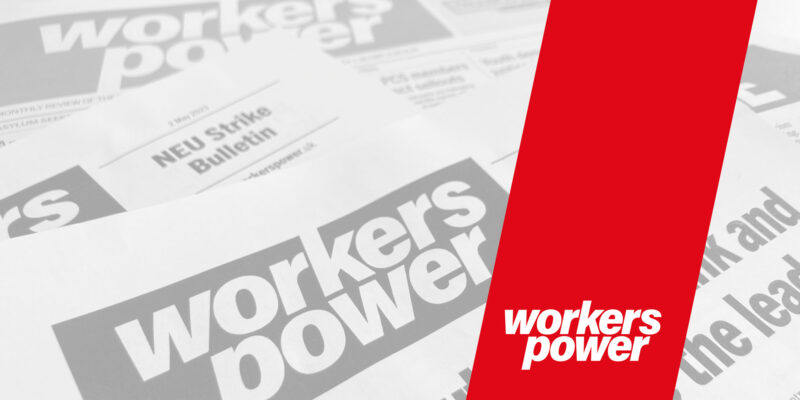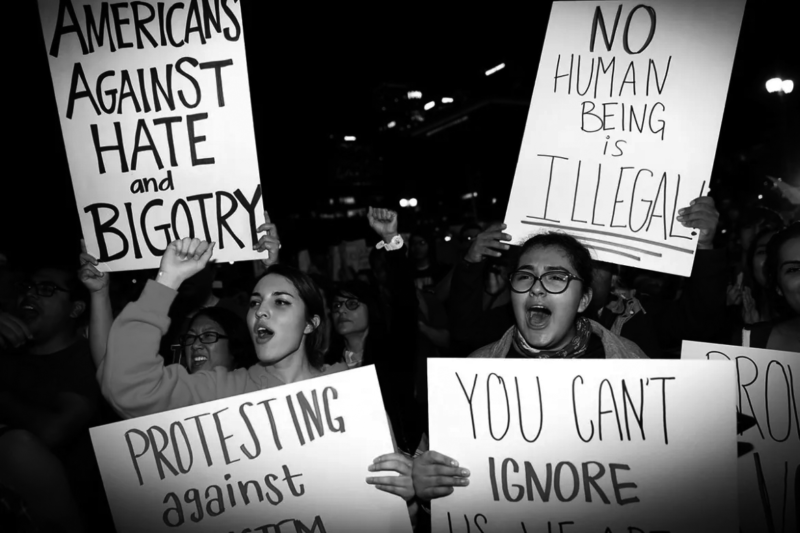Rally to defend democracy in Catalonia, Spain and Europe!
IN CATALONIA, the Madrid government’s refusal to grant bail to the “two Jordis”, Jordi Sánchez chairman of the ANC and Jordi Cuixart, chairman of Òmnium Cultural, and the threats to dissolve Catalonia’s Parliament and arrest its President, have been met with the largest demonstrations yet.

Half a million marched in Barcelona, with tens of thousands more marching in other towns across the province, including, for the first time, participation from anti-independence political formations. This attack on democracy has provoked new fissures, with several leading figures from the Catalan PSOE (PSC) openly opposing the measures. It has also triggered protests from Iñigo Urkullu, the First Minister of the Basque Country (Euskadi).
The Madrid government is preparing to take control of the Catalan regional police, the Mossos d’Esquadra, public television, TV3, economy, finance and taxation. The Spanish Senate will assume a veto over new laws. These are the conditions under which the government of Mariano Rajoy is preparing to call elections, in which all pro-independence parties will be banned from standing, within six months.
In justifying his actions, Rajoy claimed “This is not a suspension of home rule but the dismissal of those who lead the regional government”.
In fact, the measures announced go far beyond this and effectively mean the abolition of the limited self-government as well as the suppression of the fundamental democratic right to self-determination, that is, the right of a nation to freely choose its relationship with others.
If Rajoy is able to impose Madrid’s rule over Catalonia without obstruction, Spanish democracy will not be worth the paper the constitution is printed on. With EU leaders’ connivance and support, it will be another blow to democracy in Europe, following from the EU effectively taking control of the Italian and Greek governments.
The threats of severe repression from the Madrid government, together with the equivocation of Carles Puigdemont and the bourgeois liberal PDeCat party and EU leaders’ support for Rajoy, however, have moved the situation beyond “for-or-against independence for Catalonia”.
The paralysis and uncertainty are the result of two unsatisfied democratic aspirations held by Catalan residents; on the one hand, the desire for independence held by a large minority, possibly now a majority after recent repression, and, on the other, the desire of a huge majority of the population of Catalonia for a genuinely democratic discussion and decision on independence.
Neither the PDeCAT nor the “anticapitalist” nationalists of CUP are able to satisfy these aspirations adequately. The former because the Catalan bourgeoisie is unwilling to break with the big Spanish bourgeoisie and the latter because they want to impose independence whether or not a majority of Catalans support it.
Obviously, the reactionary parties, the People’s Party and the Citizens’ Party, Ciudadanos, along with their shameful supporters in the Socialist Party, PSOE, cannot do so because they vehemently oppose the right of Spain’s nations to self-determination.
If Rajoy, the Senate, the High Court and King Felipe VI succeed in imposing direct rule on Catalonia this will be a terrible blow not just for the region’s citizens but for progressive forces throughout Spain. It will also add to the recent triumphs for right wing forces, both neoliberal and populist, across the European Union; UK, France, Austria, the Czech Republic.
The Catalan Parliament should not concentrate on the dilemma of whether to declare independence or not. In itself this would be an empty gesture and provide another weapon to Rajoy. It would not only alienate the large number of Catalans who did not vote for independence but also make things more difficult for those mobilising solidarity. Instead, it should refuse to recognise Rajoy’s decrees and order the Mossos, and the civil service not to obey the instructions of the Madrid government, the Senate, the High Court or the King. It should also declare the region to be fully autonomous and republican.
In Spain as a whole, the workers’ parties and trade unions must rally to the defence of democracy and their Catalan sisters and brothers. It is good that, after a period of weak calls for negotiations, Podemos leaders have denounced Rajoy’s coup. Now, they must turn words into deeds, in the squares and workplaces, as must the leaders of the union federations, CCOO and UGT. Left-wingers in the PSOE should break from the treacherous Pedro Sánchez who says he has chosen to "defend the Constitution" rather than democracy or the working class.
The working class of Catalonia, and workers across the entire Spanish state, can place no confidence in Carles Puigdemont, or his anticapitalist allies in CUP, to lead resistance to the Madrid government’s attempt to impose direct rule. In Catalonia, workers and the radicalised youth should organise councils of resistance in every town and city, in every village, starting from the committees set up to defend the referendum.
With the unions, they should launch an all-out general strike across the province the moment Rajoy moves to implement his coup-d’état. Its immediate goals should be to stop Rajoy’s takeover and to put Catalonia in the hands of the working people. In this way, the Catalan working class can unite in action by defending the democratic rights of all the workers and nationalities of Spain, raising the banner of a social uprising to bring down the Rajoy government. Its positive goal should be the creation of a workers’ government in Catalonia and, indeed in Spain, as a whole.
The question of full state independence or not could then be resolved by an all-Spain Constituent Assembly. That Assembly should recognise the unconditional right of the nationalities to secession but, within it, socialists would raise the alternative to fragmentation; a socialist federation of the autonomous states and regions of Spain.
Meanwhile, across Europe, workers and youth, socialist and labour parties, should condemn the actions of Rajoy and the European Union’s leaders’ shameful support for them, organising mass demonstrations and raising support for the Catalans.



